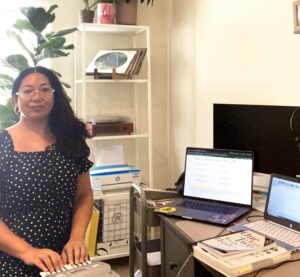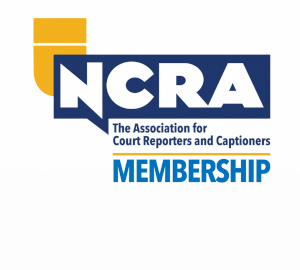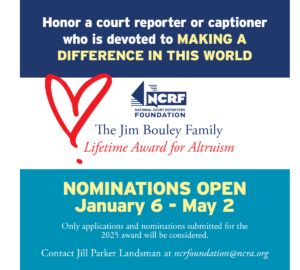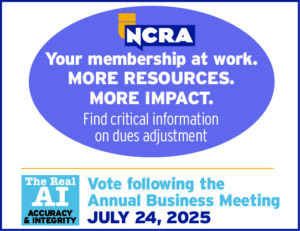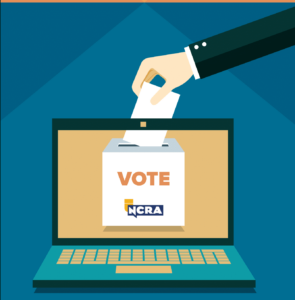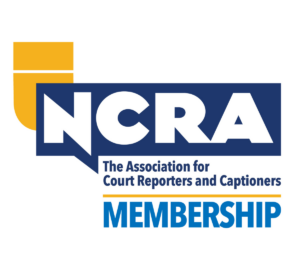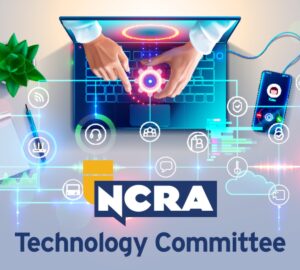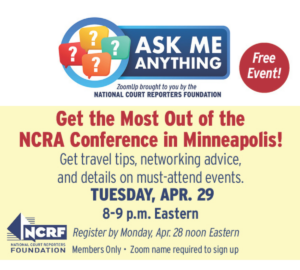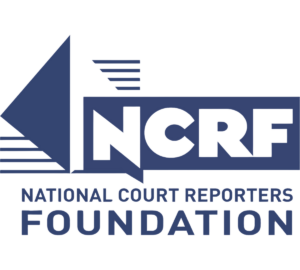Benjamin Franklin once said, “Tell me and I forget, teach me and I may remember, involve me and I learn.” For many of the court reporting students and professionals who are involved in NCRA’s Virtual Mentor Program, those words ring loudly. The program pairs working court reporters with students to create relationships that often lead to long-term friendships for both parties.
Though the program is not new to the association, NCRA is working to expand it by encouraging more members to volunteer and more students to take advantage of the unique resource. The program, which is available on NCRA.org, provides students interested in finding a mentor with access to a directory of NCRA volunteers broken down by the categories of captioners, CART providers, officials, and freelancers. Students can search the directories to find an NCRA member they feel would be suitable for meeting their needs.
The site includes a list of state court reporting associations that offer virtual mentor programs. There are also student and mentor guidelines available to help ensure both parties have a common understanding and appreciation of each other’s time, as well as a list of questions frequently asked by students who are being mentored. According to both students and NCRA members, the program provides valuable benefits to everyone involved.
“I’d heard about mentorships being a vital part of the industry since orientation day at school. When I heard that mentors are working reporters who dedicate themselves to answering students’ questions, it was a no-brainer for me to look for mentors,” said Katherine Schilling, a student at West Valley College in Saratoga, Calif.
“Now that I’ve been in school for a while and I understand just how much there is to learn about the profession – and that it can’t all be covered in school – mentors are a must-have. It makes much more sense to ask your questions and voice your concerns while in school rather than on the job,” added Schilling, who plans to work as a freelancer reporting in Japan upon graduation.
Court reporters and captioners are in a unique position to mentor students because they empathize with the difficulties of getting through court reporting school and being a new reporter or captioner.
“Unless you have a close friend of family member who is a court reporter, it will be hard to find people outside of your pool of classmates to talk to about your court reporting woes. A mentor has gone through everything that you are now facing and has come out of it alive and kicking. They’re living proof that it can be done, and the stories they tell you about their time in the field will help to stoke your excitement about the profession,” Schilling said.
NCRA members who have served as volunteer mentors report that some of the benefits they earn go deeper than just being able to give back to the profession. In many cases, the mentorships lead to long friendships as well.
“I remember very well what it was like to be a new reporter. As good as my school was, there was no way they could have prepared me for the realities of actual reporting. Everyone needs someone who has been there to answer questions and reassure them they are not crazy,” said Jeanne Cahill, RDR, CRR, CBC, an official reporter from Magnolia, Del., who has been in the profession for 29 years and has mentored about 10 students through NCRA’s program over the last 10 years.
“I was fortunate to have an extremely knowledgeable, helpful, and patient first boss. I also made friends with a wonderful coworker who took me under her wing in my first year. Twenty-nine years later, I helped her get her dream job, and we are once again coworkers,” she added.
Volunteering to mentor has allowed Sherryl Davis, a captioner from Parker, Colo., the opportunity to step out of a self-centered approach to life and see things from another’s perspective, as well as working one-on-one with someone. “I remember the challenges of court reporting school, and I empathize with students. Knowing that someone else has been where they are is a great benefit to the students,” adds Davis.
“The greatest benefit to mentored students is that they know that others want to help them,” said Santo “Joe” Aurelio, a retired court reporter from Arlington, Mass., and a mentor since 1959. “I strongly feel that all reporters should help student. I consider it their duty.”
Lisa Selby-Brood, RPR, turned to NCRA’s Virtual Mentor Program when she returned to court reporting after a 17-year hiatus. She said her experience homeschooling her son led to a love of teaching, resulting in her volunteering to be a mentor. Since reentering the court reporting field, Brood, who works as a freelance reporter in Palm Harbor, Fla., estimates that she has mentored between five and 10 students each year.
“The greatest benefit of being a mentor is the satisfaction of helping a student through to completion, especially if you hook up with them in the early speeds and see them graduate. It is a real feeling of accomplishment for both of you,” Brood said.
“For students, if they do it right, they have a leg up from their counterparts. If they ask all the questions that pop into their head throughout a couple of years, then most of those questions are answered by the time they go to their first job,” she added.
“NCRA’s mentoring program is extremely important to students. I feel that a new graduate without a mentor might not continue reporting if there is no one to reach out to when things get incredibly tough,” said Cahill. “My own sister, who graduated before me, became frustrated with her first freelance job and quit reporting after a year. I wish she had had a mentor to talk her through that tough first year.”
Students and NCRA members interested in learning more about the Virtual Mentor Program can find more information at NCRA.org.







